Lesson 5: Our Past is Our Future
Grades: 4 – 9
Outcomes:
- Students will understand the impact of colonization on Aboriginal societies.
- Students will understand the policies and the Aboriginal response over time, including those concerning residential schools, treaties, and traditional self-governance.
- Students will connect what they they know of human rights and the response to discrimination in Canadian society.
First Peoples’ Principles of Learning:
- Learning ultimately supports the well-being of the self, the family, the community, the land, the spirits, and the ancestors.
- Learning is holistic, reflexive, reflective, experiential, and relational (focused on connectedness, on reciprocal relationships, and a sense of place).
- Learning involves recognizing the consequences of one’s actions.
- Learning requires exploration of one’s identity.
Caveat: This lesson is not a stand alone. It will take between 2 and 4 hrs. Students need to have learned about local Indigenous culture prior to working with this content. This lessons would be an excellent springboard to examine the Executive Summary or Call to Action of Canada’s Truth and Reconciliation Commission.
Brief Description: : Students will learn about the different changes and losses experienced by the Sq’éwlets people due to colonization. They will examine ways of using their past to construct a brighter future, and why that is important.
Sequence of Activities:
- Give each student an 11 x 17 piece of paper. This will be their “identity placemat.” Have students draw quick little pictures (and add labels) of everything that makes up their identity: who they are. Ensure that they include reference to the following: family, ceremonies, clothing, food they eat, friends, favourite sports, things they are good at, where they live, things they do in their community, religion (if applicable), family traditions, and routines. The more comprehensive the placemat is, the stronger the impact of this lesson. If time, they can share their placemats in small groups.
- Introduce the title of the video: “ Our Past is Our Future.” In their small groups have students discuss what they watched in relation to that title. What does it mean? What changed from traditional to colonial times for Sq’éwlets People? For example, animals, children, time with families, positive self-esteem, etc. Why do you think it is important to use the past as a basis for the future? Have small groups share out with the whole class.
- In small groups have students share what they wrote down during the video.
- Share the objective for the lesson: to learn about the colonial history of the Sq’éwlets People, the profound cultural losses they experienced, ways to move forward from the past, and our own roles in that process.
- Overview definitions of key vocabulary that will come up in this lesson: colonization, reparation, displacement, and reconciliation.
- Create computer stations around the classroom. Each station should include written directions of what is to be read/viewed. At each station students will interact with the web resources to complete their “Our Past is Our Future” worksheet (at the end of this lesson). At each station, students are to view the material identified. In the chart below add in any key points about life before colonization, a description of critical events/concepts, a list of what changed and what was lost during colonial interactions with newcomers, and have them make a connection to their own lives (what would this have looked like if it happened to you or your family, e.g., What would it have felt like when the British Americans agreed to divide their two countries along the 49th parallel, going through the Stó:lō world, S’ólh Téméxw, this would be like having someone come into your house and giving it away to other people). The stations are as follows:
- Colonial History: Read through colonial history.
- Maps over Time: Look at the first map showing Sq’éwlets S’ólh Téméxw before colonization. Then go to the page on historic maps in Reserve Creation. Compare the maps on that page to the first map you viewed. Return to the first page you looked at…the bottom map shows the Sq’éwlets reserve today. What do you notice over time?
- Indian Act: Read through the page on the Indian Act and watch the videos on this page.
- Displacement: Watch the video titled “Displacement”.
- Historic timeline: Read through the sequence of events on the history timeline for the Sq’éwlets People. Identify a minimum of 5 key events over that timeline.
- Gather the whole class back in. Have small groups think-pair-share: what surprised you the most about the colonial interactions between the Sq’éwlets and the colonists? What angered/upset you? What questions do you still have?
- In pairs, students will look at their completed “Our Past is Our Future” sheets. Give back the identity placemats made earlier and, in pairs, have students cross out those things/peoples/traditions that are equivalent to what the Sq’éwlets people lost through colonization. For example, family, friends, language, religion, home, clothes, traditions, and/or sentimental objects. Have students note what very little is left.
- In groups of four discuss what impact it would have on their own lives if all of these aspects associated with their own identity were compromised. Who would they be today? Who would they be as an adult? Share out with the whole class.
- Introduce the concept of reconciliation to students: Reconciliation is about coming to terms with events of the past in a manner that overcomes conflict and establishes a respectful and healthy relationship among people, going forward. Based on what we have learned through these lessons, what are steps that need to be taken to establish a “respectful and healthy relationship among people?” Have students brainstorm individually, then in small groups, then with the whole class. Ensure that focus remains on what is done “going forward.” Responses such as “children need to be returned to their families” would not fit…that would be undoing the past. Focus of this exercise needs to be on what we can do now.
- Assessment: Students have a choice of writing a letter to the Prime Minister or writing a persuasive speech regarding the three most important things to do, as a country, to move towards reconciliation. Responses need to identify what the Sq’éwlets People lost in the colonial process, why it was significant (the impact that it has had on Indigenous Peoples), and why these three things are the most important. Importance is evaluated in relation to the number of people that will be helped, the greatest difference to health and safety, and the degree to which it is doable.
- Have students get into groups of 6 to share their final assessments. What arguments were similar? What differences existed?
- Assessment: Have students write a paragraph Ticket-out-the-Door identifying what s/he as an individual can do to work towards reconciliation.
Possible Extensions: : (a) Show the video on repatriation. Have students discuss how it is different from reconciliation. Have students create a wanted poster explaining why the ancestral remains should be returned to the Sq’éwlets people. (b) Introduce students to the Call to Action items from the Truth and Reconciliation Commission. Using what they have learned in these lessons, which action items are the most crucial? (c) In the video, Our Past is Our Future, Reg Phillips says, “The past can either imprison us or set us free. That is our choice.” What does he mean by this? How does this relate to reconciliation?



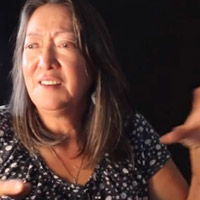 Lesson 1:
Lesson 1: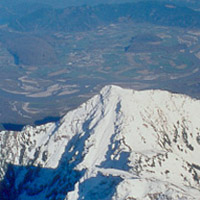 Lesson 2:
Lesson 2: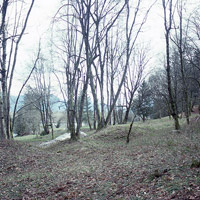 Lesson 3:
Lesson 3: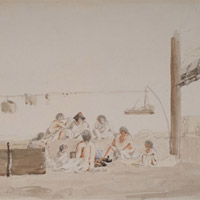 Lesson 4:
Lesson 4: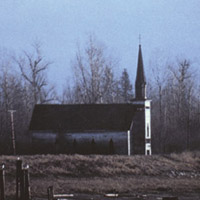 Lesson 5:
Lesson 5: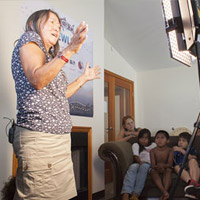 Lesson 6:
Lesson 6: